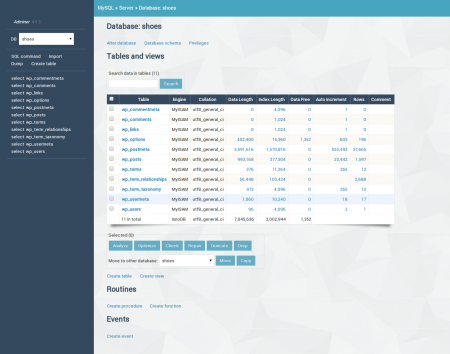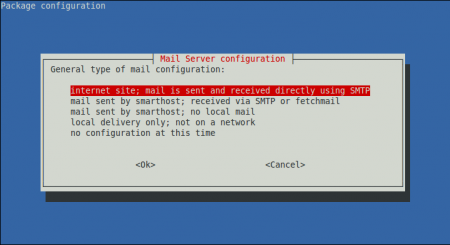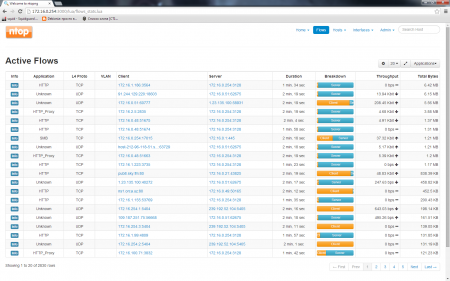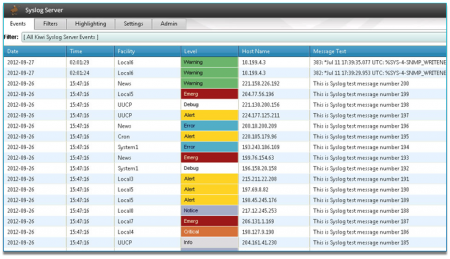Для высоконагруженного веб-сервера можно дополнительно увеличить производительность, добавив следующие настроки в /etc/sysctl.conf:
# No zero mapping feature
# May break wine
# (There are also reports about broken samba3)
#security.bsd.map_at_zero=0
# If you have really busy webserver with apache13 you may run out of processes
#kern.maxproc=10000
# Same for servers with apache2 / Pound
#kern.threads.max_threads_per_proc=4096
# Max. backlog size
kern.ipc.somaxconn=4096
# Shared memory // 7.2+ can use shared memory > 2Gb
kern.ipc.shmmax=2147483648
# Sockets
kern.ipc.maxsockets=204800
# Do not use lager sockbufs on 8.0
# ( https://old.nabble.com/Significant-performance-regression-for-increased-maxsockbuf-on-8.0-RELEASE-tt26745981.html#a26745981 )
kern.ipc.maxsockbuf=262144
# Recive clusters (on amd64 7.2+ 65k is default)
# For such high value vm.kmem_size must be increased to 3G
#kern.ipc.nmbclusters=229376
# Jumbo pagesize(_SC_PAGESIZE) clusters
# Used as general packet storage for jumbo frames
# can be monitored via `netstat -m`
#kern.ipc.nmbjumbop=192000
# Jumbo 9k/16k clusters
# If you are using them
#kern.ipc.nmbjumbo9=24000
#kern.ipc.nmbjumbo16=10240
# Every socket is a file, so increase them
kern.maxfiles=204800
kern.maxfilesperproc=200000
kern.maxvnodes=200000
# On some systems HPET is almost 2 times faster than default ACPI-fast
# Useful on systems with lots of clock_gettime / gettimeofday calls
# See https://old.nabble.com/ACPI-fast-default-timecounter,-but-HPET-83--faster-td23248172.html
#kern.timecounter.hardware=HPET
# Turn off receive autotuning
#net.inet.tcp.recvbuf_auto=0
# Small receive space, only usable on https-server, on file server this
# should be increased to 65535 or even more
#net.inet.tcp.recvspace=8192
# Small send space is useful for https servers that serve small files
# Autotuned since 7.x
net.inet.tcp.sendspace=16384
# This should be enabled if you going to use big spaces (>64k)
#net.inet.tcp.rfc1323=1
# Turn this off on high-speed, lossless connections (LAN 1Gbit+)
#net.inet.tcp.delayed_ack=0
# This feature is useful if you are serving data over modems, Gigabit Ethernet,
# or even high speed WAN links (or any other link with a high bandwidth delay product),
# especially if you are also using window scaling or have configured a large send window.
# You can try setting it to 0 on fileserver with 1GBit+ interfaces
# Automatically disables on small RTT ( https://www.freebsd.org/cgi/cvsweb.cgi/src/sys/netinet/tcp_subr.c?#rev1.237 )
#net.inet.tcp.inflight.enable=0
# TCP slowstart algorithm tunings
# We assuming we have very fast clients
#net.inet.tcp.slowstart_flightsize=100
#net.inet.tcp.local_slowstart_flightsize=100
# Disable randomizing of ports to avoid false RST
# Before usage check SA here www.bsdcan.org/2006/papers/ImprovingTCPIP.pdf
# (it's also says that port randomization auto-disables at some conn.rates, but I didn't tested it thou)
#net.inet.ip.portrange.randomized=0
# Increase portrange
# For outgoing connections only. Good for seed-boxes and ftp servers.
net.inet.ip.portrange.first=1024
net.inet.ip.portrange.last=65535
# Security
net.inet.ip.redirect=0
net.inet.ip.sourceroute=0
net.inet.ip.accept_sourceroute=0
net.inet.icmp.maskrepl=0
net.inet.icmp.log_redirect=0
net.inet.icmp.drop_redirect=1
net.inet.tcp.drop_synfin=1
# Security
net.inet.udp.blackhole=1
net.inet.tcp.blackhole=2
# IPv6 Security
# For more info see https://www.fosslc.org/drupal/content/security-implications-ipv6
# Disable Node info replies
# To see this vulnerability in action run `ping6 -a sglAac ::1` or `ping6 -w ::1` on unprotected node
net.inet6.icmp6.nodeinfo=0
# Turn on IPv6 privacy extensions
# For more info see proposal https://unix.derkeiler.com/Mailing-Lists/FreeBSD/net/2008-06/msg00103.html
net.inet6.ip6.use_tempaddr=1
net.inet6.ip6.prefer_tempaddr=1
# Disable ICMP redirect
net.inet6.icmp6.rediraccept=0
# Disable acceptation of RA and auto linklocal generation if you don't use them
#net.inet6.ip6.accept_rtadv=0
#net.inet6.ip6.auto_linklocal=0
# Increases default TTL, sometimes useful
# Default is 64
net.inet.ip.ttl=128
# Lessen max segment life to conserve resources
# ACK waiting time in miliseconds (default: 30000 from RFC)
net.inet.tcp.msl=5000
# Max bumber of timewait sockets
net.inet.tcp.maxtcptw=200000
# Don't use tw on local connections
# As of 15 Apr 2009. Igor Sysoev says that nolocaltimewait has some buggy realization.
# So disable it or now till get fixed
#net.inet.tcp.nolocaltimewait=1
# FIN_WAIT_2 state fast recycle
net.inet.tcp.fast_finwait2_recycle=1
# Time before tcp keepalive probe is sent
# default is 2 hours (7200000)
#net.inet.tcp.keepidle=60000
# Should be increased until net.inet.ip.intr_queue_drops is zero
net.inet.ip.intr_queue_maxlen=4096
# Interrupt handling via multiple CPU, but with context switch.
# You can play with it. Default is 1;
#net.isr.direct=0
# This is for routers only
#net.inet.ip.forwarding=1
#net.inet.ip.fastforwarding=1
# This speed ups dummynet when channel isn't saturated
net.inet.ip.dummynet.io_fast=1
# Increase dummynet(4) hash
#net.inet.ip.dummynet.hash_size=2048
#net.inet.ip.dummynet.max_chain_len
# Should be increased when you have A LOT of files on server
# (Increase until vfs.ufs.dirhash_mem becomes lower)
vfs.ufs.dirhash_maxmem=67108864
# Note from commit https://svn.freebsd.org/base/head@211031 :
# For systems with RAID volumes and/or virtualization envirnments, where
# read performance is very important, increasing this sysctl tunable to 32
# or even more will demonstratively yield additional performance benefits.
vfs.read_max=32
# Explicit Congestion Notification (see https://en.wikipedia.org/wiki/Explicit_Congestion_Notification)
net.inet.tcp.ecn.enable=1
# Flowtable - flow caching mechanism
# Useful for routers
#net.inet.flowtable.enable=1
#net.inet.flowtable.nmbflows=65535
# Extreme polling tuning
#kern.polling.burst_max=1000
#kern.polling.each_burst=1000
#kern.polling.reg_frac=100
#kern.polling.user_frac=1
#kern.polling.idle_poll=0
# IPFW dynamic rules and timeouts tuning
# Increase dyn_buckets till net.inet.ip.fw.curr_dyn_buckets is lower
net.inet.ip.fw.dyn_buckets=65536
net.inet.ip.fw.dyn_max=65536
net.inet.ip.fw.dyn_ack_lifetime=120
net.inet.ip.fw.dyn_syn_lifetime=10
net.inet.ip.fw.dyn_fin_lifetime=2
net.inet.ip.fw.dyn_short_lifetime=10
# Make packets pass firewall only once when using dummynet
# i.e. packets going thru pipe are passing out from firewall with accept
#net.inet.ip.fw.one_pass=1
# shm_use_phys Wires all shared pages, making them unswappable
# Use this to lessen Virtual Memory Manager's work when using Shared Mem.
# Useful for databases
#kern.ipc.shm_use_phys=1
# ZFS
# Enable prefetch. Useful for sequential load type i.e fileserver.
# FreeBSD sets vfs.zfs.prefetch_disable to 1 on any i386 systems and
# on any amd64 systems with less than 4GB of avaiable memory
# For additional info check this nabble thread https://old.nabble.com/Samba-read-speed-performance-tuning-td27964534.html
#vfs.zfs.prefetch_disable=0
# On highload servers you may notice following message in dmesg:
# "Approaching the limit on PV entries, consider increasing either the
# vm.pmap.shpgperproc or the vm.pmap.pv_entry_max tunable"
vm.pmap.shpgperproc=2048















